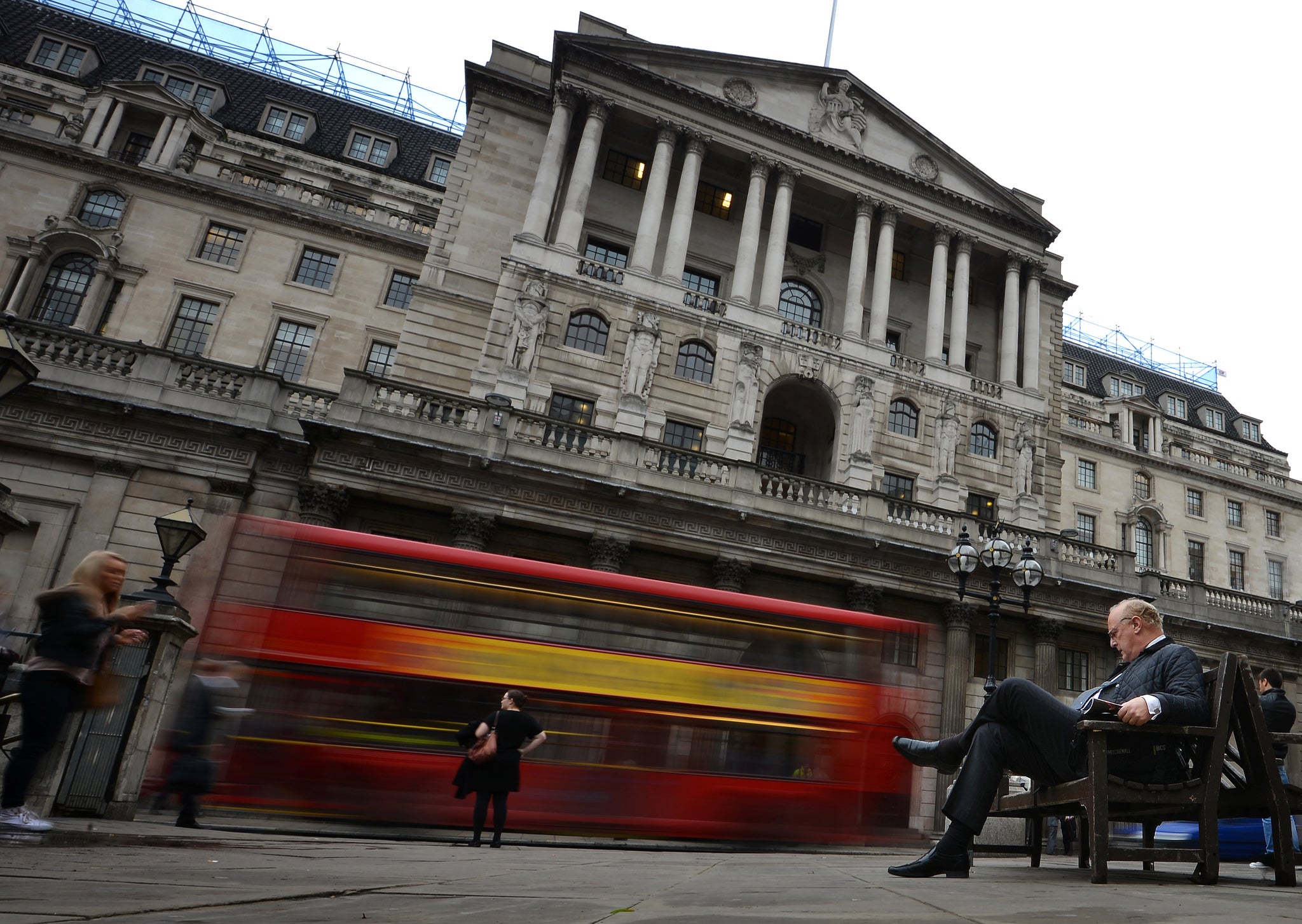A weaker jobs market report has helped push back market expectations of the first interest rate rise from the Bank of England further into next year.
The number in work fell by 63,000 to 31.03 million in the three months to June while the numbers in unemployment rose by 24,000, continuing a weakening trend that began in last month’s jobs report.
Wage growth was also weaker than City analysts had expected. The three-month average year-on-year growth rate of total pay was 2.4 per cent, against expectations of 2.8 per cent growth.
The pound immediately fell about half a cent against the dollar to $1.5549, although it later recovered to $1.5624. Sterling swap rates showed that markets are pricing in the first rate rise from Threadneedle Street in June 2016, back from April 2016 last week.
The Bank of England already served to dampen expectations of a rate rise this year when it emerged last week that only one member of the Monetary Policy Committee, Ian McCafferty, voted to increase rates from 0.5 per cent this month. Many in the City had expected at least two members of the nine-member committee to favour a rise.
Martin Beck of the EY Item Club said: “Q2 was the first quarter to see both rising unemployment and falling employment since the beginning of 2013. Combined with a weaker performance for pay growth this should be enough to bolster the MPC’s doves in resisting a rate rise this year.”
The weaker jobs report could signal strong productivity growth. Total hours worked fell 0.2 per cent in the second quarter of the year. Combined with the Office for National Statistics’ initial estimate that GDP grew by 0.7 per cent in the second quarter, that implies that output per hour increased by 0.9 per cent in the three months to June.
“The balance of growth between jobs and productivity seems to be shifting, which could be good news if it makes the upturn more sustainable in the long run” said John Hawksworth at PwC.
But the TUC general secretary, Frances O’Grady, said the latest figures should be a cause for concern about the recovery. “It is too soon to say that jobs growth is now in a pattern of decline, but poor employment and unemployment results for a second month running are worrying” she said. “If we want a recovery that is built to last for the long-term, we need a better economic plan with more investment in skills, infrastructure and innovation to help job creation and growth.”
In the three months the number of self-employed rose by 8,000 and part-time jobs rose by 29,000. The number of employees fell by 54,000.
Subscribe to Independent Premium to bookmark this article
Want to bookmark your favourite articles and stories to read or reference later? Start your Independent Premium subscription today.


Join our commenting forum
Join thought-provoking conversations, follow other Independent readers and see their replies